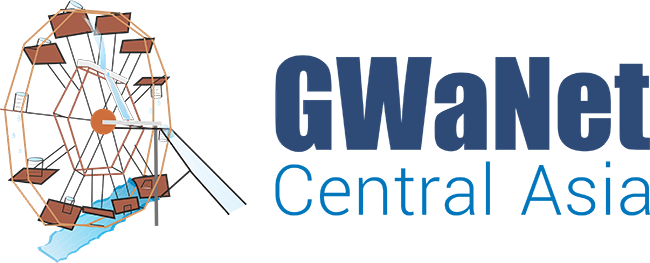Meetings
Workshop "Gender Issues in Water Supply and IWRM at Farm Level"
14 September 2004, Fergana, Uzbekistan
Based on initiative of Global Water Partnership for Central Asia and Caucasus (GWP CACENA) and Scientific Information Center of Interstate Coordination Water Commission (SIC ICWC), a survey of representative households in Kuva rayon of Fergana oblast was carried out to reveal different needs, roles, opportunities, benefits, and problems of women and men in water resources management and use at farm level.
On results of the survey SIC ICWC and GWP CACENA held a workshop "Gender Issues in Water Supply and IWRM at Farm Level " on 14 September 2004 in Fergana.
Chairman GWP CACENA Sokolov V., ADB URM gender specialist Khudayberdiyeva М., DSSP/UNDP gender adviser Alimdjanova D., SIC ICWC experts (Mukhamedjanov Sh., Ziganshina D.), representatives of SPA SANIIRI (Stulina G., Torguzova A.), representatives of Fergana District Water Resources Department (Fosilov A. ), Fergana District Statistical Department (Gofurova G.), nongovernmental organizations (Irgasheva S.M., Kodirov K.), and farmers and inhabitants of Kuva rayon have participated in the workshop.




During the first part of the workshop reports on gender concept, gender mainstreaming in water resources use and management have been listened; the results of studies on Gender aspects in water resources use and management at field level in Kuva and Ahunbabaev rayon of Fergana oblast was presented. Summarizing active discussions, one can conclude that gender issues in water resources management are crucial and demand attention of government agencies, nongovernmental and donor organizations. The concrete actions necessary for practical realization of discussed problems have reflected in the workshop resolution.



Resolution of the workshop “Gender Issues in Water Supply and IWRM at Farm Level”
Lack of possibilities for proper realization of women’s potential has a negative impacts to rural communities. Involving women in water resources management at farm level is important not only from the point of social equity and democratic principles, but also with the view of more effective and rational use of water resources.
Within the framework of an initiative on gender mainstreaming in water resources management in Central Asian countries SIC ICWC and GWP CACENA have held a special workshop on 14 September 2004 in Fergana.
Workshop goal was discussion of the problems that face women and men during water resources use and management at farm level. A basis for discussion was the findings of the special survey of representative households in Kuva district of Fergana province in Uzbekistan on ‘Gender aspects in water resources access and management’.
During workshop the participants were focused to the following issues:
- Different opportunities for women and men in access to and control over water resources, costs and benefits of production.
- Lack of qualification and knowledge among women in water resources management issues.
- Increase of stress to rural women due involvement into domestic busyness (unpaid) and low paid jobs.
- Insufficient women’s involvement into decision-making, particularly within WUA and Water Committees’ activities.
- Low qualification of mirabs (water suppliers) who cannot provide the effective service to rural population.
- Necessity of improving crop patterns for rational water resources use.
In the result of discussions it has been agreed the following:
- To carry out a number of educational activities (workshops/trainings) on water use for targeted groups. Gender issues, water saving methods and water management skills should be included into the training program;
- To arrange legal seminars for female targeted groups;
- To promote establishing water users’ groups including trained women as their active participants;
- To involve women into existing WUA and Water Committees’ activities more broadly. Quotas for women in management bodies should consist at least above 30%;
- To carry out a number of actions for ideas dissemination on how to establish targeted groups, water saving technologies introduction, water metering, etc. through mass media, lectures, water festivities in communities and other actions;
- To start activities on specific initiatives addressed to water objects design and construction in the most water scarce settlements of district and their presentation to potential donors;
- To encourage the actions promoting water sources protection from pollution and sanitary conditions improvement. The most prospective is activity among youth and in schools;
- To carry out ecological, sanitary and hygienic trainings.
The participants fully supported initiative of SIC ICWC and GWP CACENA to establish a Gender and Water Network in the Central Asia.

